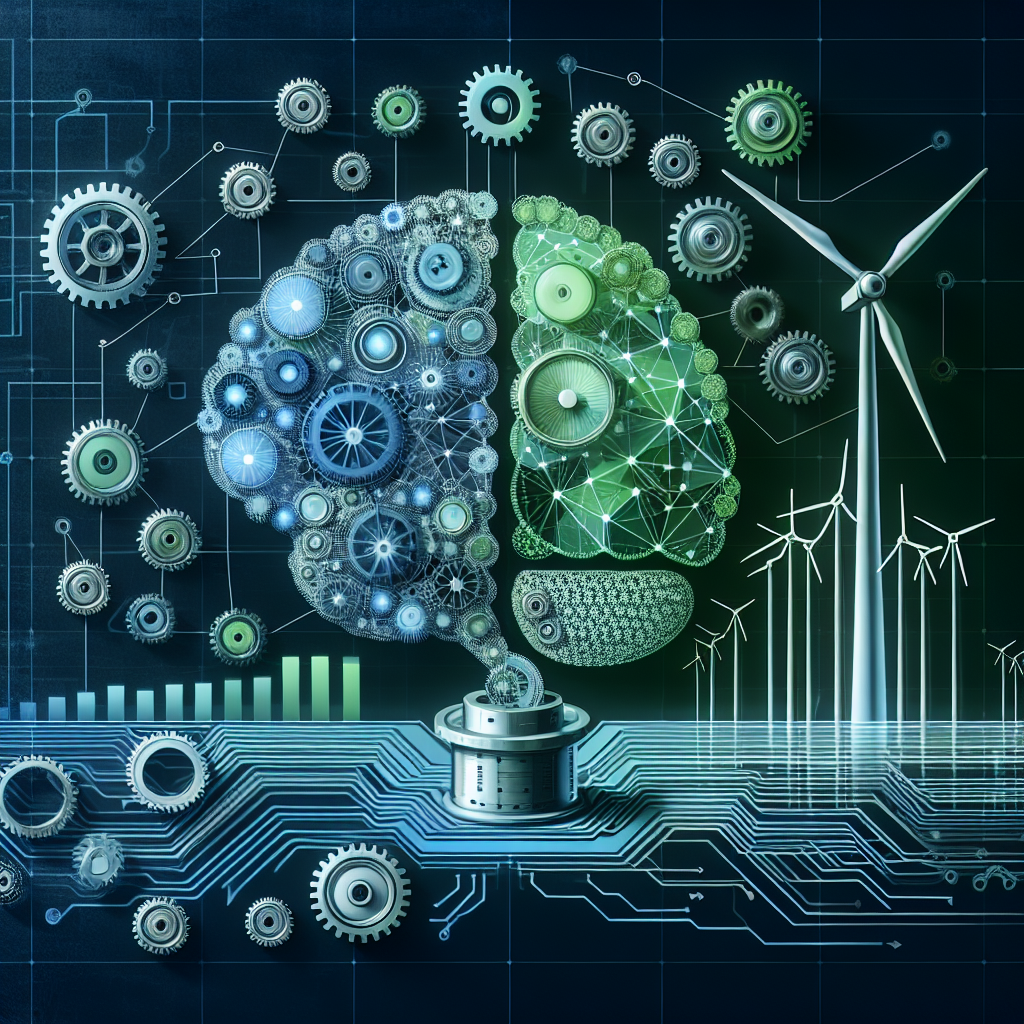Artificial Intelligence (AI) is revolutionizing the way we generate and manage renewable energy. By leveraging AI technologies, we can optimize renewable energy systems to maximize efficiency, reduce costs, and minimize environmental impact. From solar panels to wind turbines, AI is playing a crucial role in transforming the renewable energy sector.
One of the key challenges in renewable energy generation is the variability of sources like solar and wind. Unlike traditional fossil fuels, renewable energy sources are dependent on weather conditions and can fluctuate throughout the day. This variability makes it difficult to predict and manage energy production effectively. However, AI can help address these challenges by analyzing data in real-time and adjusting energy production accordingly.
AI algorithms can forecast weather patterns and predict energy production from renewable sources with greater accuracy. By analyzing historical data and current weather conditions, AI can optimize the operation of renewable energy systems to ensure maximum efficiency. For example, AI can adjust the angle of solar panels to capture the most sunlight or optimize the rotation speed of wind turbines to generate more power.
In addition to optimizing energy production, AI can also improve the maintenance and performance of renewable energy systems. By monitoring equipment in real-time and analyzing data from sensors, AI can detect and predict potential issues before they occur. This proactive approach to maintenance can reduce downtime, extend the lifespan of equipment, and lower maintenance costs.
Furthermore, AI can optimize energy storage systems, such as batteries, to store excess energy generated by renewable sources. By analyzing energy consumption patterns and predicting demand, AI can ensure that energy is stored and distributed efficiently. This can help reduce the reliance on fossil fuels and improve the stability of the grid.
Overall, the role of AI in renewable energy optimization is crucial for achieving a sustainable and efficient energy system. By leveraging AI technologies, we can maximize the potential of renewable energy sources and accelerate the transition to a clean energy future.
FAQs:
1. How does AI help optimize renewable energy systems?
AI helps optimize renewable energy systems by analyzing data in real-time, forecasting weather patterns, and adjusting energy production accordingly. By optimizing the operation of renewable energy systems, AI can maximize efficiency, reduce costs, and minimize environmental impact.
2. Can AI improve the maintenance of renewable energy systems?
Yes, AI can improve the maintenance of renewable energy systems by monitoring equipment in real-time, detecting potential issues before they occur, and predicting maintenance needs. This proactive approach to maintenance can reduce downtime, extend the lifespan of equipment, and lower maintenance costs.
3. How does AI optimize energy storage systems?
AI optimizes energy storage systems by analyzing energy consumption patterns, predicting demand, and ensuring that energy is stored and distributed efficiently. By optimizing energy storage systems, AI can help reduce the reliance on fossil fuels and improve the stability of the grid.
4. What are the benefits of using AI in renewable energy optimization?
The benefits of using AI in renewable energy optimization include maximizing efficiency, reducing costs, minimizing environmental impact, improving maintenance, and optimizing energy storage systems. By leveraging AI technologies, we can accelerate the transition to a clean and sustainable energy future.

